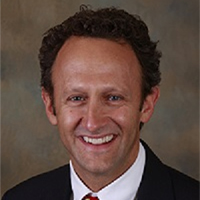UC San Diego School of Medicine Physician-Scientists Elected to Association of American Physicians
Story by:
Published Date
Article Content
Two University of California San Diego School of Medicine physician-scientists have been elected to the Association of American Physicians (AAP). Cynthia Gyamfi-Bannerman, M.D., M.S. and Harold (Hal) Hoffman, M.D. were selected for membership to the AAP for their contributions to basic and translational biomedical research.
The AAP is an honorific, elected society of America’s leading physician-scientists who exemplify the pinnacle of pioneering and enduring, impactful contributions to improve health. The goals of its members include the pursuit of medical knowledge, its advancement through experimentation and discovery of basic and clinical science and its application to clinical medicine.
"I am very proud to have two UC San Diego School of Medicine faculty honored by the Association of American Physicians this year for their scientific impact to the field of medicine,” said Barbara Jung, M.D., associate vice chancellor and dean of UC San Diego School of Medicine. “Dr. Gyamfi-Bannerman’s work has made a significant progress in improving health outcomes for mothers and infants across the globe, while Dr. Hoffman’s research has made groundbreaking contributions to the understanding and treatment of rare and complex immune disorders. Their election to the AAP is a reflection of their tireless pursuit to advance medicine and improve the delivery of health care through innovative research and scholarship.”

Cynthia Gyamfi-Bannerman, M.D., M.S.
Professor and Samuel SC Yen Endowed Chair
Department of Obstetrics, Gynecology and Reproductive Sciences
A leader in obstetrics and gynecology, Cynthia Gyamfi-Bannerman is internationally recognized for her work in obstetric complications and maternal-fetal medicine. She is a perinatologist at UC San Diego Health and is dual board certified in obstetrics and gynecology and maternal-fetal medicine. She joined the UC San Diego School of Medicine faculty in 2021.
With a career spanning more than 20 years, Gyamfi-Bannerman has dedicated her research to improving maternal-fetal health, reducing preterm birth and improving obstetric outcomes for normal and complicated pregnancies. For example:
- A landmark study found that antenatal administration of betamethasone, a type of steroid, to women at risk for late preterm delivery significantly reduced the rate of neonatal respiratory complications. These findings changed clinical practice in the nation and in many other parts of the world. A follow-up study examined the long-term neurodevelopmental outcomes children born during the clinical trial and showed no adverse outcomes at age 6 years or older.
- Gyamfi-Bannerman published the first study showing that low-dose aspirin reduced the rate of preterm birth in first pregnancies without coexisting health conditions. She received the American Journal of Obstetrics and Gynecology Research Excellence Award for this work in 2019.
- A randomized clinical trial showed that delayed cord clamping was a safe practice during cesarean delivery. Delayed cord clamping also decreased neonatal anemia without increasing maternal blood loss.
Gyamfi-Bannerman is a graduate of the University of Miami where she earned her bachelor’s and medical degrees. She completed her residency in obstetrics and gynecology at the University of Miami/Jackson Memorial Hospital and her fellowship at Mount Sinai Hospital in New York City. She also holds a master’s degree in biostatistics in the clinical research methods track from Columbia University.
In addition to the AAP, Gyamfi-Bannerman is a member of several professional societies including the American Society for Clinical Investigation, American College of Obstetricians and Gynecologists and the American Gynecological & Obstetric Society. She is also the immediate past president of the Society for Maternal-Fetal Medicine.

Hal Hoffman, M.D
Professor of Pediatrics and Medicine and
Chief, Division of Allergy, Immunology and Rheumatology in the Department of Pediatrics
A leading expert in rare pediatric diseases, Hal Hoffman specializes in the care of children with rare inflammatory and immunologic disorders. Using human genetics, molecular biology and translational studies, Hoffman’s research program aims to gain insights into the underlying mechanisms of the immune system and develop new approaches to treating rare, inherited diseases. He joined the UC San Diego faculty in 1998 and provides patient care at Rady Children’s Hospital-San Diego.
His research team was the first to identify the genetic basis of five rare diseases and has been involved in the approval of three novel drugs for several orphan diseases (diseases that affect fewer than 1 in 200,000 people). Some research highlights include:
- A 2019 study that identified that a mutation in a gene called TOP2B which results in the rare disease Hoffman syndrome. The disease affects the development and function of B-cells, making it difficult for the body to fight off infections.
- Hoffman’s team discovered that mutations in the gene NLRP3 resulted in cryopyrin-associated periodic syndromes (CAPS), a group of rare disorders that can lead to an overactive immune response. They also found that NLRP3 plays a role in other disorders including gout, cardiovascular disease and liver disease.
Hoffman earned his bachelor’s degree from Wesleyan University and his medical degree from University of Texas Medical Branch. He completed his residency in pediatrics at the Medical University of South Carolina and a fellowship in allergy and immunology at UC San Diego.
Hoffman is an elected fellow of the American Academy of Allergy, Asthma, and Immunology and the American Society of Clinical Investigation. He has served on several scientific boards including the advisory board for the Arthritis National Research Foundation, and as secretary for both the International Cytokine Society and International Systemic Autoinflammatory Disease Society.
About the Association of American Physicians
The Association of American Physicians is a nonprofit, professional organization founded in 1885 by seven physicians for the advancement of scientific and practical medicine. The AAP is composed of members who are leading senior physician-scientists and are competitively selected. Currently, there are 2,700 active, emeritus and honorary members from the United States, Canada and other countries in the AAP. Members have included Nobel laureates, and members of the National Academy of Science and the National
Share This:
Stay in the Know
Keep up with all the latest from UC San Diego. Subscribe to the newsletter today.



